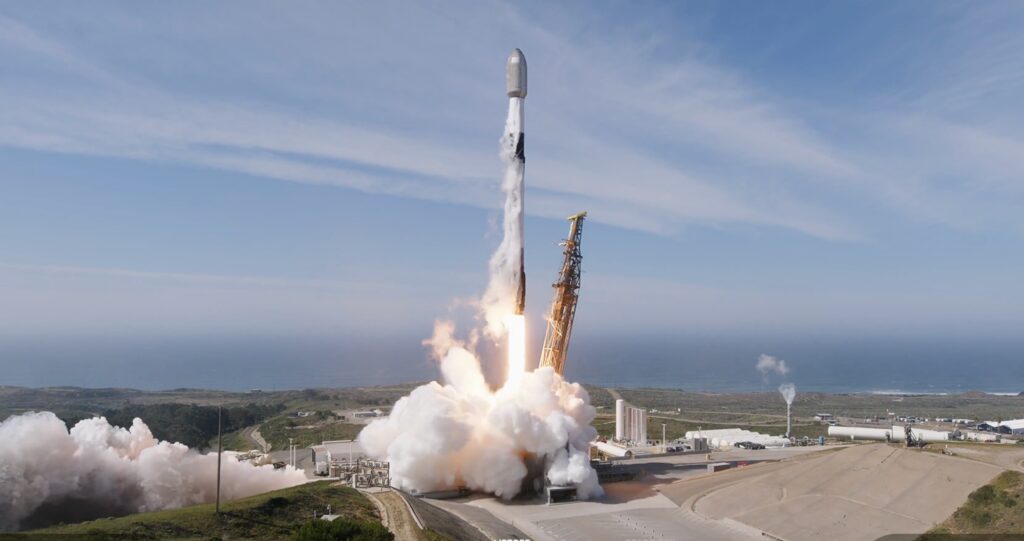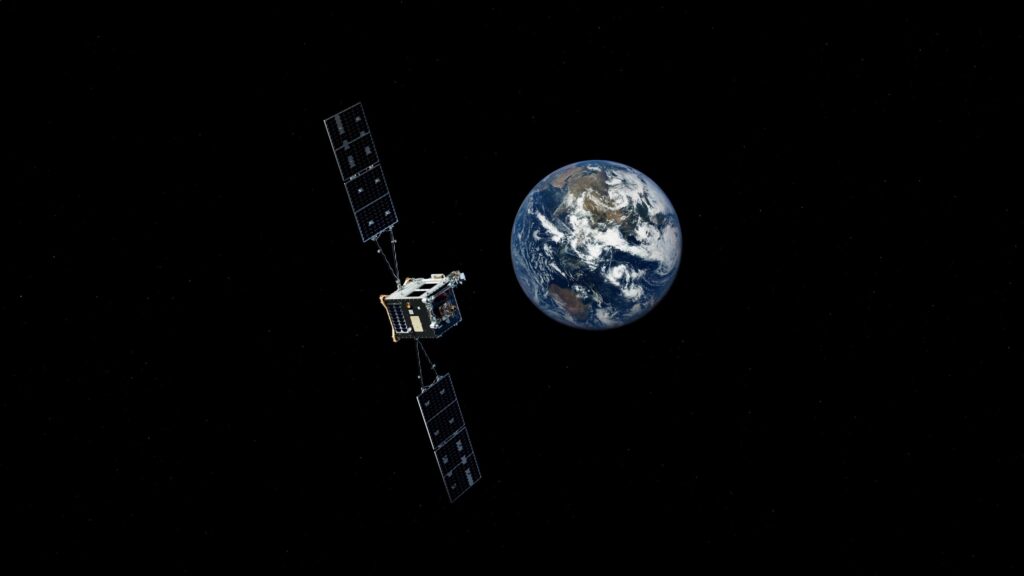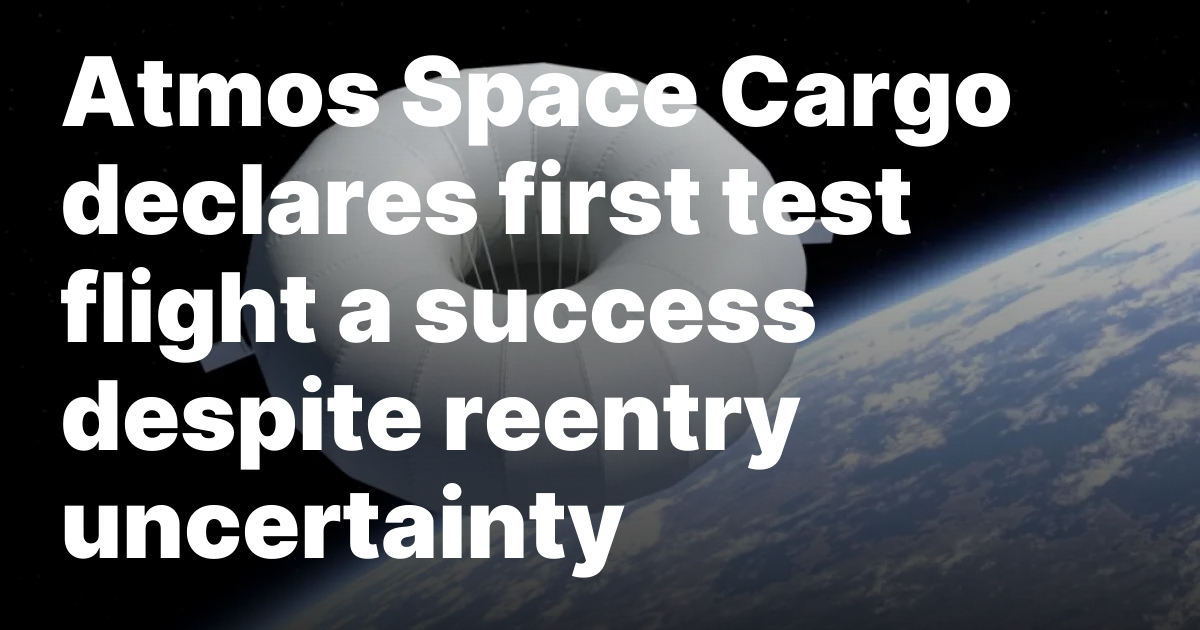Now Reading: Astra targets cargo delivery with Rocket 4 in Pentagon-backed plan
-
01
Astra targets cargo delivery with Rocket 4 in Pentagon-backed plan
Astra targets cargo delivery with Rocket 4 in Pentagon-backed plan
Astra, the once high-flying rocket startup that crashed back to Earth with investors before going private last year, has unveiled new details about its $44 million contract with the Department of Defense that supports the development of Rocket 4, a two-stage, mobile launch vehicle with ambitions to deliver cargo across the globe in under an hour.
The Alameda, California-based company, which was delisted from Nasdaq in June 2024 after its shares collapsed, is now targeting the first test flight of Rocket 4 in 2026 and looking to position the vehicle as a rapid delivery system for military cargo.
Chris Kemp, Astra’s chief executive, said in an interview the company intends to leverage its contract with the Defense Innovation Unit to demonstrate point-to-point delivery of about 1,300 pounds of cargo using Rocket 4. The military for years has expressed interest in using rockets for rapid deployment of critical supplies to remote locations, complementing traditional transportation methods.
Astra is one of several companies DIU selected last year for the Novel Responsive Space Delivery project, which aims to prototype commercial solutions for precise point-to-point delivery of supplies from orbit via specialized reentry vehicles.
A DIU spokesperson confirmed the arrangement includes two launch milestones: one suborbital (point to point), and the other orbital with the option to launch from a location outside the United States, as Astra is developing a mobile launcher.
“This is a multi-year effort with the two demonstrations planned around the mid to end of calendar year 2026,” DIU said.
Kemp said the orbital launch will likely occur from Australia.
Challenging development timeline
Astra faces a compressed timeline. Kemp said the company is “working hard to have stages tested this year, targeting no earlier than the end of Q1 2026 for first test launch.” A separate military payload, Space Test Program STP-27B, is scheduled to launch no earlier than Q3 2026.
Payments under the DIU contract are milestone-based, requiring Astra to demonstrate it is “de-risking” Rocket 4 by qualifying engines and stages while sharing development data with the government. Kemp said Astra is funding Rocket 4’s development through private investment and revenue from its satellite propulsion business.
Astra’s vision mirrors what competitor ABL Space attempted but didn’t succeed in executing — creating a truly mobile launch system that can be transported in shipping containers and operated from diverse locations, not just established spaceports.
The Pentagon has long sought rapid-response launch capabilities outside major spaceports. One specific application Kemp highlighted would use suborbital trajectories to deliver military drones into conflict zones using reentry vehicles.
A large number of drones — depending on the size — could be delivered to the other side of the planet in 45 minutes, Kemp said. He noted ongoing discussions with drone manufacturer Anduril to potentially use their systems in demonstrations, along with talks with unnamed reentry vehicle providers.
Seeking a comeback
The Pentagon contract represents a potential comeback for Astra, which began in 2005 as a small aerospace research firm before pivoting to launch vehicles in 2016. Its early attempts at reaching orbit were plagued with failures — Rocket 1 and Rocket 2 both failed in 2018, while the Rocket 3 series achieved only two successful launches out of seven attempts.
A high-profile NASA mission failure in June 2022 severely damaged Astra’s reputation just as the company was trying to establish itself after going public via SPAC merger in 2021. Despite reaching a $2 billion valuation and acquiring Apollo Fusion to expand into satellite propulsion, Astra’s stock plummeted over 90% by mid-2022.
The company went private in July 2024, retiring the Rocket 3 program to focus on the larger Rocket 4 and its growing satellite propulsion business.
Stay Informed With the Latest & Most Important News
Previous Post
Next Post
-
 01Two Black Holes Observed Circling Each Other for the First Time
01Two Black Holes Observed Circling Each Other for the First Time -
 02From Polymerization-Enabled Folding and Assembly to Chemical Evolution: Key Processes for Emergence of Functional Polymers in the Origin of Life
02From Polymerization-Enabled Folding and Assembly to Chemical Evolution: Key Processes for Emergence of Functional Polymers in the Origin of Life -
 03Φsat-2 begins science phase for AI Earth images
03Φsat-2 begins science phase for AI Earth images -
 04Thermodynamic Constraints On The Citric Acid Cycle And Related Reactions In Ocean World Interiors
04Thermodynamic Constraints On The Citric Acid Cycle And Related Reactions In Ocean World Interiors -
 05Hurricane forecasters are losing 3 key satellites ahead of peak storm season − a meteorologist explains why it matters
05Hurricane forecasters are losing 3 key satellites ahead of peak storm season − a meteorologist explains why it matters -
 06Binary star systems are complex astronomical objects − a new AI approach could pin down their properties quickly
06Binary star systems are complex astronomical objects − a new AI approach could pin down their properties quickly -
 07Worlds Next Door: A Candidate Giant Planet Imaged in the Habitable Zone of α Cen A. I. Observations, Orbital and Physical Properties, and Exozodi Upper Limits
07Worlds Next Door: A Candidate Giant Planet Imaged in the Habitable Zone of α Cen A. I. Observations, Orbital and Physical Properties, and Exozodi Upper Limits





















